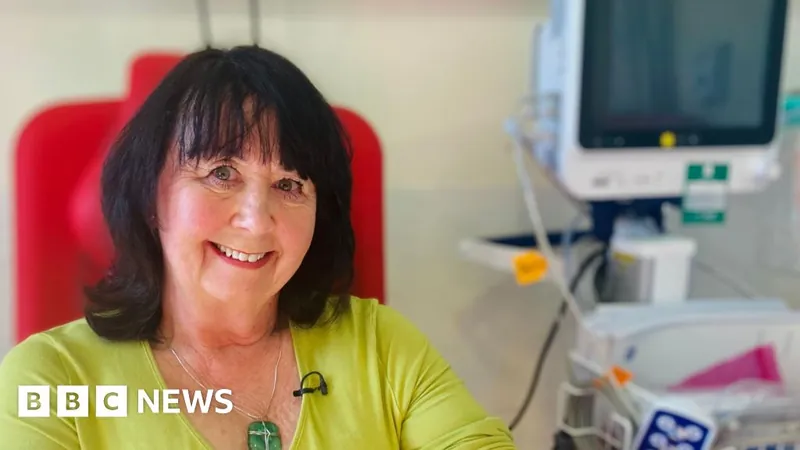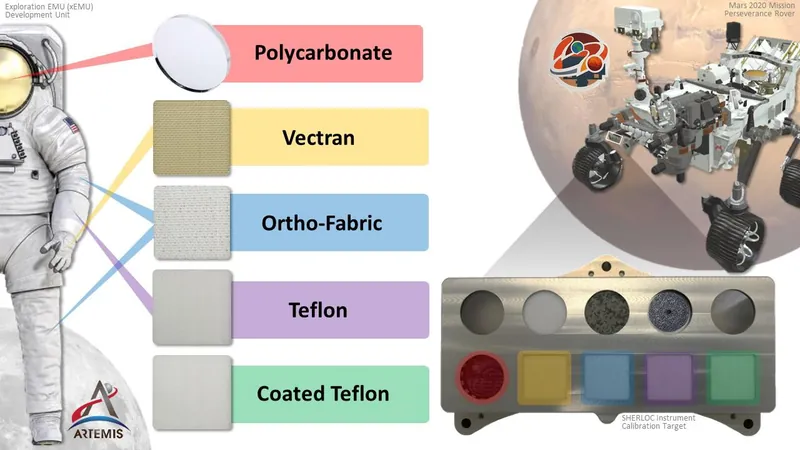
Groundbreaking Newcastle Study Aims to 'Switch Off' Rheumatoid Arthritis Pain
2025-03-24
Author: Yu
In a pioneering research initiative at Newcastle University, a new study is diving deep into the complexities of rheumatoid arthritis, with the ambitious goal of teaching blood cells to 'switch off' the debilitating pain associated with the condition. The AuToDeCRA-2 study is enrolling participants for trials that aim to prove that it's possible to retrain the immune system to prevent it from attacking healthy tissues.
Leading the research is Professor John Isaacs, a seasoned expert with over 35 years of experience in the field. He describes this innovative approach as a way to effectively instruct white blood cells—termed the "generals" of the immune system—to command other immune cells, the "soldiers," to cease their assault on healthy areas of the body.
Among those taking part in the trial is Carol Robson, a 70-year-old former nurse from Jarrow in South Tyneside. Like many patients, she grapples daily with pain that significantly impacts her quality of life. "The worst part of living with the disease is the pain, but if this research helps ease that suffering, it would be wonderful," she expresses optimistically.
This research is backed by the charity Versus Arthritis and the European Commission, targeting an estimated 450,000 individuals living with rheumatoid arthritis in England alone. Professor Isaacs emphasizes the uniqueness of their efforts, indicating that only a handful of other research teams globally are undertaking similar investigations.
Understanding the Immune System's Role
In its current phase, the study begins by isolating specific white blood cells from each patient’s blood sample. Professor Isaacs likens these immune cells to a coordinated army that mobilizes against infections. Dendritic cells serve as the commanding generals that signal when to launch an attack. However, when these generals misinterpret signals of danger, they unintentionally incite destructive actions against the body's joints—a hallmark of rheumatoid arthritis.
The laboratory process involves cultivating these white blood cells to embody a 'calm' state. When reintroduced into the patient, these retrained generals are expected to instruct the soldier cells to stop their war on healthy tissue.
A Glimmer of Hope for Patients
The potential implications of this research extend beyond the immediate relief of rheumatoid arthritis symptoms. Should the trials demonstrate success, the approach could be adaptable to other autoimmune disorders, such as diabetes and multiple sclerosis. "We refer to this as the re-education of the immune system," Professor Isaacs notes.
Despite the current trial involving a modest group of around 32 patients, the research holds significant promise. If positive outcomes are observed, a larger trial could follow. However, even with success, it may take another five to ten years before patients can actually access this revolutionary treatment.
Carol Robson reflects on her experience, stating, "After receiving injections with the retrained white blood cells, I believe I’ve experienced less pain. Perhaps it's just hope, but I feel it’s better." She proudly expresses the honor of being part of such groundbreaking research, emphasizing the hope it brings for millions worldwide grappling with similar struggles.
As this Newcastle study progresses, it stands as a beacon of hope for the 18 million people around the globe living with rheumatoid arthritis, potentially shifting the paradigm of treatment and patient care. Keep an eye on this transformative research that could one day 'switch off' rheumatoid arthritis pain for good!


 Brasil (PT)
Brasil (PT)
 Canada (EN)
Canada (EN)
 Chile (ES)
Chile (ES)
 Česko (CS)
Česko (CS)
 대한민국 (KO)
대한민국 (KO)
 España (ES)
España (ES)
 France (FR)
France (FR)
 Hong Kong (EN)
Hong Kong (EN)
 Italia (IT)
Italia (IT)
 日本 (JA)
日本 (JA)
 Magyarország (HU)
Magyarország (HU)
 Norge (NO)
Norge (NO)
 Polska (PL)
Polska (PL)
 Schweiz (DE)
Schweiz (DE)
 Singapore (EN)
Singapore (EN)
 Sverige (SV)
Sverige (SV)
 Suomi (FI)
Suomi (FI)
 Türkiye (TR)
Türkiye (TR)
 الإمارات العربية المتحدة (AR)
الإمارات العربية المتحدة (AR)